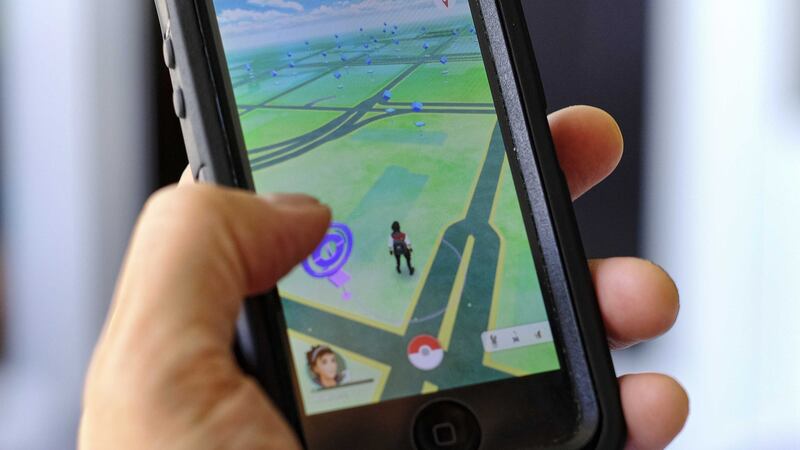THE long summer evenings have led to a strange phenomenon outside The Irish News on Belfast’s Donegall Street.
For the last fortnight or so, groups of people, mainly men in their twenties and thirties, can be seen lingering by the office, frantically tapping on their smartphones in a bid to 'catch 'em all'.
You see these strange beasts wandering up and down Royal Avenue, staring at screens rather than their surroundings and muttering odd phrases including "here's a pokestop" and "there's a Charmander by Tesco".
Pokémon Go, for anyone who doesn't yet know, is the most popular mobile game ever produced, with more daily active users than Twitter.
The game uses a smartphone’s map functions, GPS and camera to show colourful cartoon characters you have to 'catch' as you navigate the everyday world.
To the uninitiated, or plain baffled, Pokémon - short for pocket monsters - is a Japanese phenomenon that's been around for two decades.
To those old enough to remember, the cartoon seemed to show in a permanent loop on one television station or another in the late 1990s.
While you could easily turn to another channel if you didn't fancy watching the cartoon, the game is an altogether different experience.
It’s immersive and consuming, like an annoying neighbour who knows you’re home and keeps ringing the doorbell until you answer.
Those of us who haven't fallen for the thrill of 'collecting' fictional cartoon characters, could be forgiven for thinking the game is one large Darwinian experiment.
Since Pokémon Go was launched earlier this month, four teenage boys in England have been rescued from caves 100ft underground, players in Bosnia have wandered into minefields left over from the Balkan war and a man has jumped in front of traffic on the A2 in Holywood, Co Down - all in a bid to catch just one more monster.
Everyone from the US Holocaust Memorial museum in Washington DC to the north's Southern Health and Social Care Trust have politely asked gamers not to search for Pokémon on their property, pointing out that it might be inappropriate to play a mobile game at a memorial to the victims of Nazism or a hospital.
People have been seen playing the game at funerals, in cemeteries, in courtrooms, and most disturbingly of all, public toilets.
The world has now swiftly divided into people who want to catch a Magikarp (a medium-sized fish with orange scales according to the official Pokémon website) at the 9/11 memorial fountain in New York and those who could cheerfully throw gamers' phones into the water and hope they sink.
One reason the game has been so successful is that it taps into the Millennial generation's love of nostalgia.
We may not be able to afford to buy a house or have a decent pension, but just look at all the cute retro animals. And what harm really, provided you don't inadvertently wander down a mine shaft?
Summer is usually seen as 'silly season' in the world of news, but with the Islamic State attack in Nice, the political crackdown in Turkey following a failed coup, and Boris Johnson as foreign secretary, these last few months have been anything but silly.
We could argue that our troubled world needs escapism and entertainment more than it ever did, but perhaps the opposite argument is true.
Following last month’s Brexit vote, figures showed that only around two-thirds of registered voters aged between 18 and 39 - a key Pokémon Go’s demographic - bothered to vote.
Around 90 per cent of over 65s cast their ballot. In the end, older people who hadn’t grown up on a diet of colourful monsters made the deciding vote.
Granted the game was only launched after the referendum, but at an time of huge uncertainty it says something about our values that we seem more interested in our phone screens than whether our departure from the European Union will cause another recession.
We’ve allowed ourselves to become infantilised by our own interests - not just playing games that in previous generations were the preserve of children, but actually taking them seriously.
Escapism can sometimes be healthy, but it’s as if we can no longer bear to confront the world around us.
At a time when humanity seems destined to crumble under the weight of our own violent stupidity, maybe we need to pay more attention to the physical world, rather than less.
Never mind catching Pokémon, look out for oncoming traffic.








